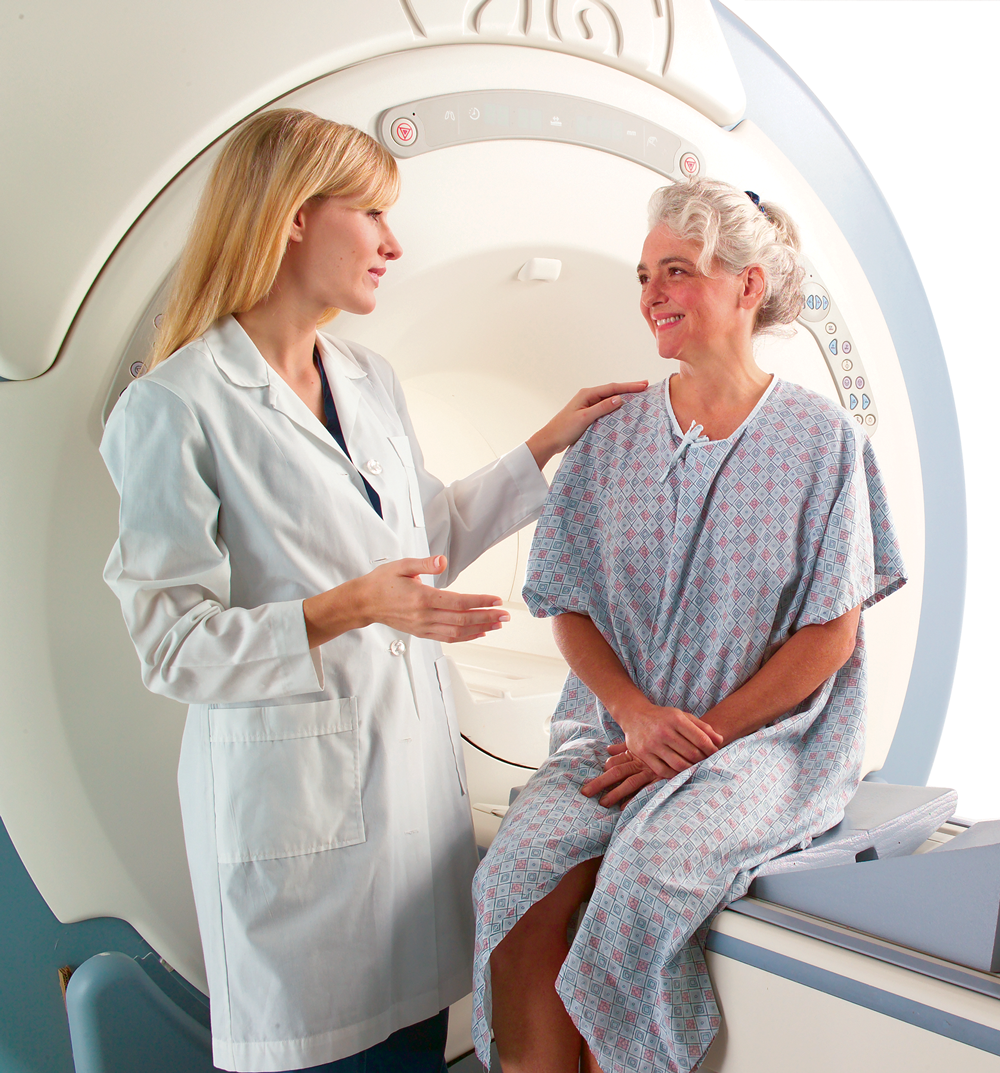Important information to know
ABOUT MRI AND MRA
Providers use magnetic resonance imaging (MRI) to find diseases or abnormalities in the body without using X-rays. MRI uses a magnetic field and radio waves to create detailed images of the body. MRI is non-invasive and painless. Most MRI scans require fewer than sixty minutes to complete.
Magnetic resonance angiography (MRA) is a type of MRI. It provides detailed images of blood vessels without the use of catheters or surgery. MRA can detect problems with blood vessels that may be causing reduced blood flow. Both the blood flow and the condition of the blood vessel walls can be seen.
During your MRI scan, you lie on a cushioned table that moves into the scanner. An injected contrast agent may be used. MRI contrast agents rarely cause allergic reactions. The technologist will stay in contact with you throughout the exam.

